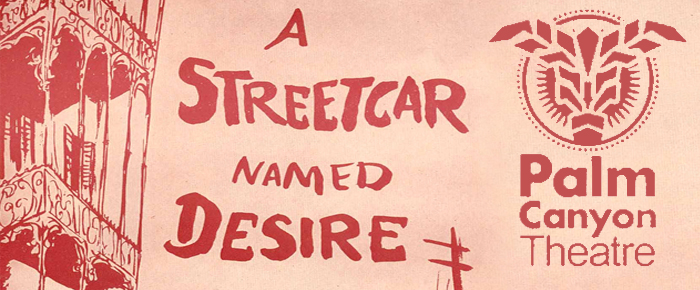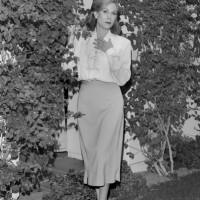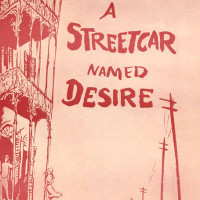
“They told me to take a street-car named Desire, and transfer to one called Cemeteries, and ride six blocks and get off at—Elysian Fields!”
By Dee Jae Cox
This journey, the precursor to the play, allegorically represents the trajectory of Blanch Dubois’ life, the tragic protagonist of Tennessee Williams’ Pulitzer Prize winning play, “Street Car Named Desire” currently in production at the Palm Canyon Theatre.
Blanch Dubois, exquisitely portrayed by veteran actress Yo Younger, is a woman who is trapped in a reality that she seems to despise and tries desperately to escape through alcohol and fantasy. Younger, does what she seems to do so well, reaching inside the character and turning her inside out for the world to see the bloody heart and soul of this tragic and flawed woman after she is forced due to destitute circumstances, to move in for an indefinite stay with her sister Stella and brother-in-law Stanley. Casey Ging, as Stella, does a remarkable job in her portrayal of a woman who epitomizes the attitudes, restrictions and abuses perpetrated on women when they are forced to depend on men for their survival, choosing sex and security over personal safety and ethics.
Williams’ 1947 melodrama is what good theatre is all about, rather than depicting the fantasy, it casts the harsh light of reality on a world that existed in Post War America 1940’s and still lives in the regions of our country where time has forgotten to advance the human existence. The hot, sticky, New Orleans heat can be felt crawling across your skin as you watch these characters move through the days of their dysfunctional lives. The subtle undertone of the music creates a mood and atmosphere that perfectly encapsulates the time.
Stanley Kowalski (Steven Meeks) is a common man, despicable and disturbing in his raw aggression and abuse. I can’t help wondering if Williams’ ability to create such flawed and jagged characters is the genius of his writing or the result of his own alcoholic demons?
I took a tour of New Orleans once and visited every place that Williams had lived within the French Quarter. I spoke with a woman who owned the store downstairs from where ‘Street Car,’ was written in the apartment above. I asked if she knew why Williams had moved so frequently within the less than a square mile area? She said that he was troubled and self-destructive just like so many of his characters and kept getting evicted. That personal anguish is obviously reflected in the brilliance of his work.
Harold “Mitch” Mitchell, wonderfully performed by Scott Smith, broke my heart. The only character who inspired hope, in the end succumbs to destined failure as he too falls in line with the unrealistic demands and expectations we place on others in the elusive search for a happy ending.
Judith Chapman, directs this latest incarnation of “Street Car Named Desire” and it was absolutely flawless. Her orchestrated scene transitions were some of the best that I have seen in any production. The slowing down of movement and the changing of clothing as indicators of the passage of time was perfect. It kept the story moving and left no dead space in this three act drama. Chapman, also a very gifted actress as well as director, portrayed the upstairs neighbor, Eunice; herself a woman typical of this oppressive life.
There would be only one critique of this production that disappointed in any way. Upstage, a floor to ceiling wall was left blank and begging for lighting, images, something that no doubt would have contributed to the overall excellence of the show.
“Whoever you are—I have always depended on the kindness of strangers.” Blanche’s final words. “Street Car Named Desire,” is classic theatre. Everyone should see a performance, or two, of this timeless drama. Be prepared for a long evening, but it is more than worth the time. I highly recommend that you get your tickets for this show, currently running through November 22nd, at the Palm Canyon Theatre, located at 538 North Palm Canyon Drive in Palm Springs.
For Reservations: Box Office: 760-323-5123 – www.palmcanyontheatre.org
Dee Jae Cox, is a playwright, director and producer. She is the Cofounder and Artistic Director for The Los Angeles Women’s Theatre Project and the host of the hit radio show, “California Woman 411.”
















































